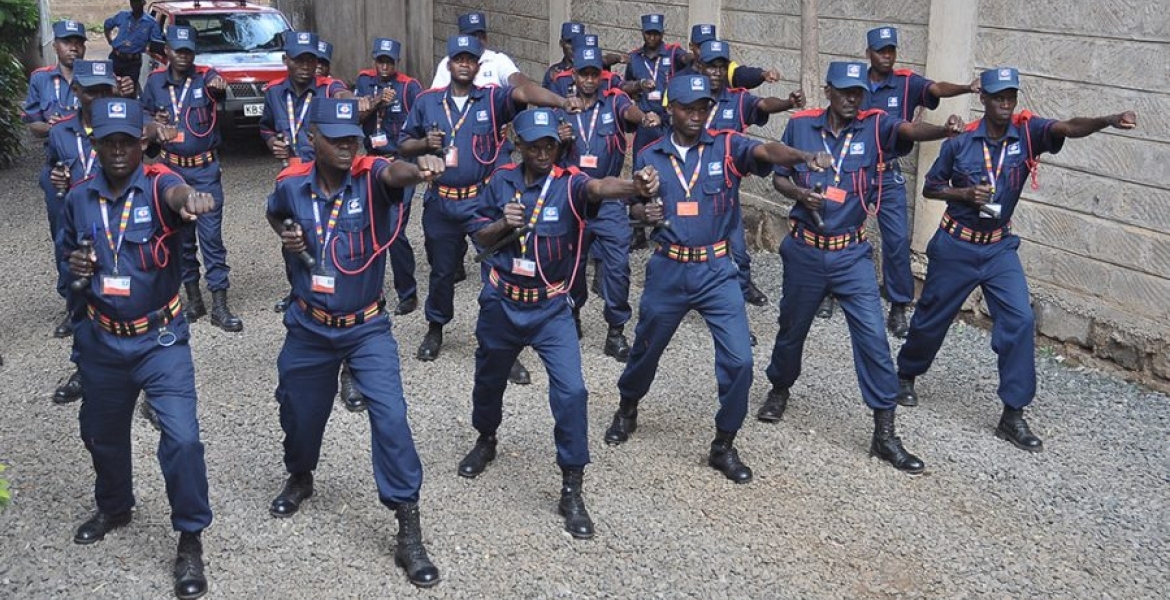The private security sector in Kenya plays a crucial role in enhancing safety and providing additional protection for both businesses and individuals. Whether you’re establishing a security firm or want to work as a private security guard, obtaining a license is a legal requirement. The process is regulated by the Private Security Regulatory Authority (PSRA), ensuring that all private security providers adhere to the necessary standards of professionalism and accountability. This comprehensive guide outlines the steps and requirements for getting a license for private security in Kenya.
Understanding the Private Security Sector in Kenya
Private security companies provide essential services that range from guarding premises to offering cash-in-transit and security systems management. The sector complements law enforcement agencies in enhancing public safety and protecting private property. With the increasing demand for security services due to urbanization and rising security threats, many entrepreneurs are venturing into this industry. However, operating without a proper license can lead to penalties or closure of your business.
Why You Need a Private Security License
The Kenyan government, through the Private Security Regulation Act, 2016, mandates that all private security providers must be licensed. The aim of this legislation is to professionalize the sector and protect consumers from unscrupulous operators. A license not only gives you legal status but also enhances your credibility with potential clients. It ensures that your business meets the standards set by the PSRA, including staff training, ethical conduct, and operational efficiency.
Requirements for Obtaining a Private Security License
Before applying for a private security license, you need to meet specific qualifications. These requirements ensure that only capable and ethical individuals or companies are authorized to provide security services. Below are some key requirements:
- Business Registration: You must first register your security company with the Registrar of Companies through the eCitizen portal. Your business name must reflect the nature of your operations.
- Criminal Background Check: All applicants must undergo a thorough criminal background check conducted by the Directorate of Criminal Investigations (DCI). This step ensures that individuals with a criminal record are barred from the industry.
- Professional Training: Security firms must ensure that their guards are professionally trained by certified institutions. Training covers areas like conflict management, customer service, physical security, and basic law enforcement principles.
- Financial Capacity: You must demonstrate financial stability, ensuring that your company can sustain operations, pay employees, and invest in necessary equipment. This includes providing a bank statement or proof of sufficient capital.
Steps to Apply for a Private Security License
The process of acquiring a private security license in Kenya involves several stages. Here is a detailed breakdown of the application process:
- Submit an Application: Your application must be submitted to the Private Security Regulatory Authority (PSRA). This can be done physically at their offices or online through their website. You will need to fill out the application form and attach the necessary documents, including your company’s registration certificate, proof of staff training, and background clearance.
- Inspection of Premises: The PSRA will conduct an inspection of your office premises to ensure that they meet the required standards. The location must be conducive for running a security firm, with adequate space for operations, secure storage for sensitive information, and appropriate equipment.
- Assessment of Personnel: The PSRA also evaluates the qualifications of your staff, especially security guards. They must have undergone proper training from accredited institutions. The authority will check the training certificates and ensure the staff have passed background checks.
- Payment of Fees: You will need to pay a licensing fee, which varies depending on the type of security services you intend to offer. Payment can be made through the PSRA’s online platform or at their physical offices. Keep in mind that annual renewal fees also apply once the license is issued.
- Approval and Issuance of License: Once all requirements are met, and your application is approved, the PSRA will issue your company a license. This license must be prominently displayed at your business premises, and it is valid for one year. Regular renewals are required to keep the license active.
Regulatory Compliance
After receiving your license, you must comply with various operational regulations set by the PSRA. These regulations are aimed at ensuring professionalism and accountability in the private security sector. Key compliance measures include:
- Adherence to the Code of Conduct: Your firm must adhere to the PSRA’s Code of Conduct, which governs ethical practices, treatment of employees, and client relations.
- Employee Welfare: Private security companies are required to provide competitive wages, health insurance, and other benefits to their employees as mandated by law.
- Reporting Incidents: Any major security incidents involving your firm must be reported to the PSRA and law enforcement agencies within a stipulated period.
Training and Certification
To maintain a high level of professionalism, the PSRA emphasizes proper training for security personnel. It’s mandatory for security firms to offer continuous training programs for their guards to keep them up-to-date with new security technologies and emerging threats. There are several accredited training institutions across Kenya that provide courses in private security, ranging from basic guard training to advanced security management programs.
Insurance and Liability
Private security firms must obtain adequate insurance coverage to protect their business from liabilities. This includes liability insurance in case of accidents, damages, or negligence on the part of your employees. Insurance is also essential for protecting your assets, such as security equipment and vehicles used for operations like cash-in-transit services.
Licensing for Different Types of Security Services
Depending on the type of security services you wish to offer, there may be additional licensing requirements. For example, companies providing alarm monitoring, CCTV surveillance, or armed security services may require further authorization and inspection of their equipment and personnel. It’s important to specify the scope of your services when applying for a license to avoid legal complications later on.
Penalties for Operating Without a License
Operating a private security firm without a valid license is illegal in Kenya. The PSRA has strict penalties for non-compliance, which may include hefty fines, suspension of operations, or even imprisonment. Additionally, companies that fail to renew their licenses on time or violate regulations risk having their licenses revoked permanently.





